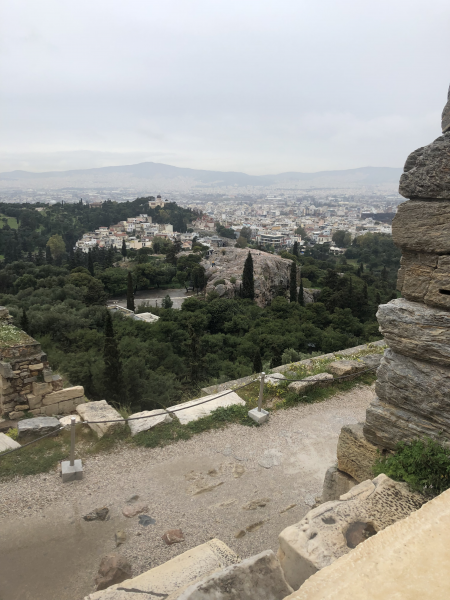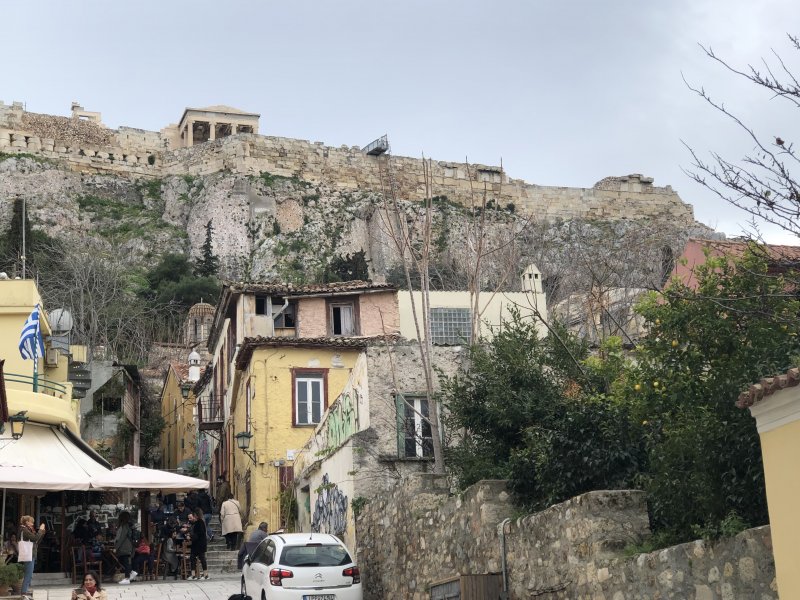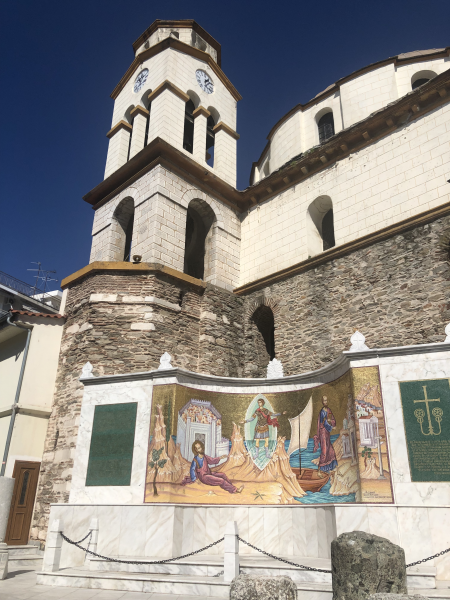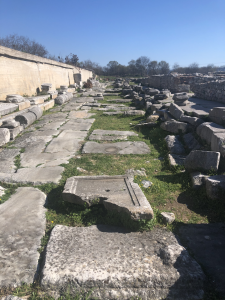Contact Info
Location
65 S. Sandusky St.
Delaware, OH 43015
E ddmarkwa@owu.edu
David Markwardt, Associate Dean of the OWU Connection


The Apostle Paul was a persecutor of Christians initially, until he encountered Jesus Christ on his road to Damascus and became the Apostle Paul. Paul dedicated the rest of his life to being a follower of Jesus, preaching the gospel, and gaining souls for Christ. The Apostle Paul took three major journeys during his crusade for Christ. During my time in Athens and Thessaloniki, Greece I studied a portion of his third journey in Eastern Greece.
Athens

The Apostle Paul arrived in Athens through the water port of Piraeus by boat, and the traveled on to Athens. After arriving in the city of Athens, Paul took a tour of the city, and all the temples on the Acropolis. Paul referred to Athens as the city of gods, and he was very bothered and distressed by the pagan gods in the temples on the Acropolis. During my independent study, we discussed Paul consistently preaching against the gods, and many groups usage of idols/gods. Idols/gods were very commonly used during those times, the main reason people have idols/gods is they want to be able to see who they worship and know who to pray to. Tangible religion is very powerful and idols also give people a bit more control over a god. After his short tour they then took him to Areopagus Hill also known as Mars Hill, and began to preach to the Athenians, high officials of Areopagus council, and other foreigners. He preached against the pagan gods and for the God that he knew. "The God who made the world and everything in it is the Lord of heaven and earth and does not live in temples built by human hands." (Acts 17:24, NIV) After Paul concluded his message, there were mixed reactions, some mocked Paul, some wanted to hear the message again, and others became followers of Paul. Two of the most important people that became followers of the Apostle Paul was Dionysius and Damaris, which were two people of the High Court of Areopagus council. But many counted this preaching moment as a failure, because he was unable to gain a lot of followers, but others see it as a win to be able to gain any.


Thessaloniki/Kavala/Phillipi
Paul and Silas arrived in Thessaloniki, Silas was a close peer to Paul, and after their arrival they went to a Jewish synagogue and he preached three Sabbath days. Through his teachings some believed and some decided to follow but others were angered by them, and ran them out of the town to Berea, Greece. ( Acts 17: 1-8 NIV) The Apostle Paul arrived through the water port of Kavala on his second major journey. It is the most well-known event through Kavala. For example, on the outside of the Church of St. Nicholas there is a beautiful mosaic of the Apostle Paul's arrival. All around the entire city of Kavala there are small murals of this event. From Kavala the Apostle Paul moved on to Phillipi following the Via Egnatia which was a road constructed by the Romans, which they used for their military. During their time in Phillipi Paul and Silas were imprisoned for messing with the fortune teller and made them lose money, in modern day terms they would be considered as a public nuisance. Unfortunately, due to archaeological restoration I was unable to see the actual prison. Paul and Silas were able to gain another follower in the prison guard that was guarding their cell. "Around midnight Paul and Silas were praying and singing hymns to God, and the other prisoners were listening. Suddenly, there was a massive earthquake, and the prison was shaken to its foundations. All the doors immediately flew open, and the chains of every prisoner fell off. The jailer woke up to see the prison doors wide open." (Acts 16:25-27 NIV). The prison guard saw their faith in God and how they praised and worshipped Him, the jailer then became a believer in the Lord. (Acts 16:11-40 NIV).
The Apostle Paul's Influence was greater in Thessaloniki than in Athens. In Athens, Paul arriving and preaching is not talked about as much. When speaking to Athenians about his preaching moment they call his moment a failure, and in some cases even joke about what he tried to do. They do not believe that he was a figure of importance and not at all really worth discussing. In Thessaloniki, the influence of Paul was far greater. All around Thessaloniki and neighboring cities such as Kavala, Berea, and Phillipi almost every archaeological site ruins reference the Apostle Paul. The Christian churches that Paul established in many of these communities the ruins to this day still stand. Also, the Baptistery of St. Lydia, who was the Apostle Paul's first convert to Christianity in Phillipi still remains.The Apostle Paul's influence is still discussed and honored, and I believe as time goes on his journey and teachings will still be held with a high regard.